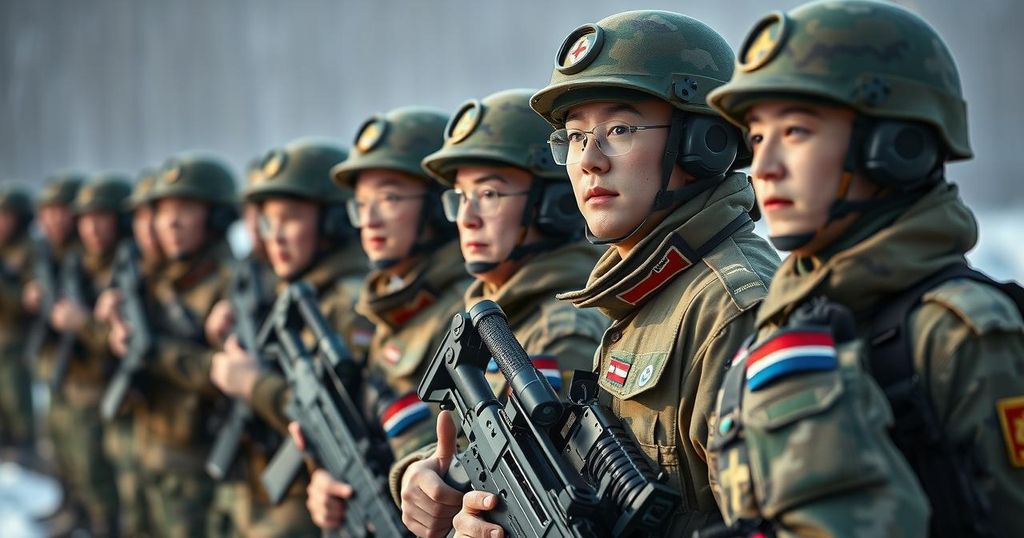North Korean Soldiers Used as Bait in Ukraine-Russia Conflict

Recent reports indicate that North Korean soldiers are being used by Russian troops as bait to attract Ukrainian drones, with significant casualties reported among these soldiers. Meanwhile, Germany investigates potential Russian espionage, while discussions about a possible U.S.-Russia dialogue are expected concerning the ongoing conflict. President Zelensky has also expressed readiness to exchange captured North Koreans for Ukrainian prisoners of war.
Recent developments in the Ukraine-Russia conflict have revealed alarming tactics employed by Russian forces involving North Korean soldiers. Diaries from North Korean troops indicate that these soldiers are being utilized as bait to draw Ukrainian drones into range for attack. The diary entries detail instructions for North Korean soldiers to position themselves dangerously close to Ukrainian drones while their compatriots conceal themselves for ambush. Additionally, tensions regarding espionage have escalated, with German authorities investigating suspected Russian drone surveillance over military sites in Bavaria. Meanwhile, former British defense ministers have advocated for the UK to participate in a post-conflict peacekeeping mission in Ukraine. Amid these developments, South Korean intelligence reports indicate significant casualties among North Korean troops fighting alongside Russian forces. In the diplomatic realm, anticipation builds for a conversation between incoming U.S. President Donald Trump and Russian President Vladimir Putin, amid discussions surrounding a potential prisoner exchange involving captured North Korean soldiers. Ukrainian President Volodymyr Zelensky has stated a willingness to exchange captured North Korean soldiers in return for Ukrainian prisoners of war.
The ongoing conflict between Ukraine and Russia has escalated various military strategies, drawing in allied nations such as North Korea. North Korean troops have been observed participating in the conflict, significantly impacting the tactical landscape. The engagement of drone warfare highlights modern combat’s complexities, especially as nations adapt old military tactics to fit contemporary warfare dynamics. The recent espionage allegations in Germany reflect broader security concerns regarding military technologies and international cooperation against constant threats from adversaries. Moreover, the diplomatic front is pressured by the need to resolve the conflict through dialogue, which includes prospective negotiations between leaders from the U.S. and Russia, further complicating international relations.
In summary, the use of North Korean soldiers as bait by Russian forces underscores the brutal and innovative tactics employed in the Ukraine conflict. The situation remains fluid, with espionage investigations and calls for international peacekeeping efforts emphasizing the need for a multifaceted approach to address the ongoing crisis. Diplomatic negotiations, highlighted by an anticipated conversation between Trump and Putin, are paramount as both sides navigate the complexities of war and its aftermath. Moreover, the potential exchange of soldiers illuminates the humanitarian aspect intertwined with military strategies in this protracted conflict.
Original Source: www.independent.co.uk






